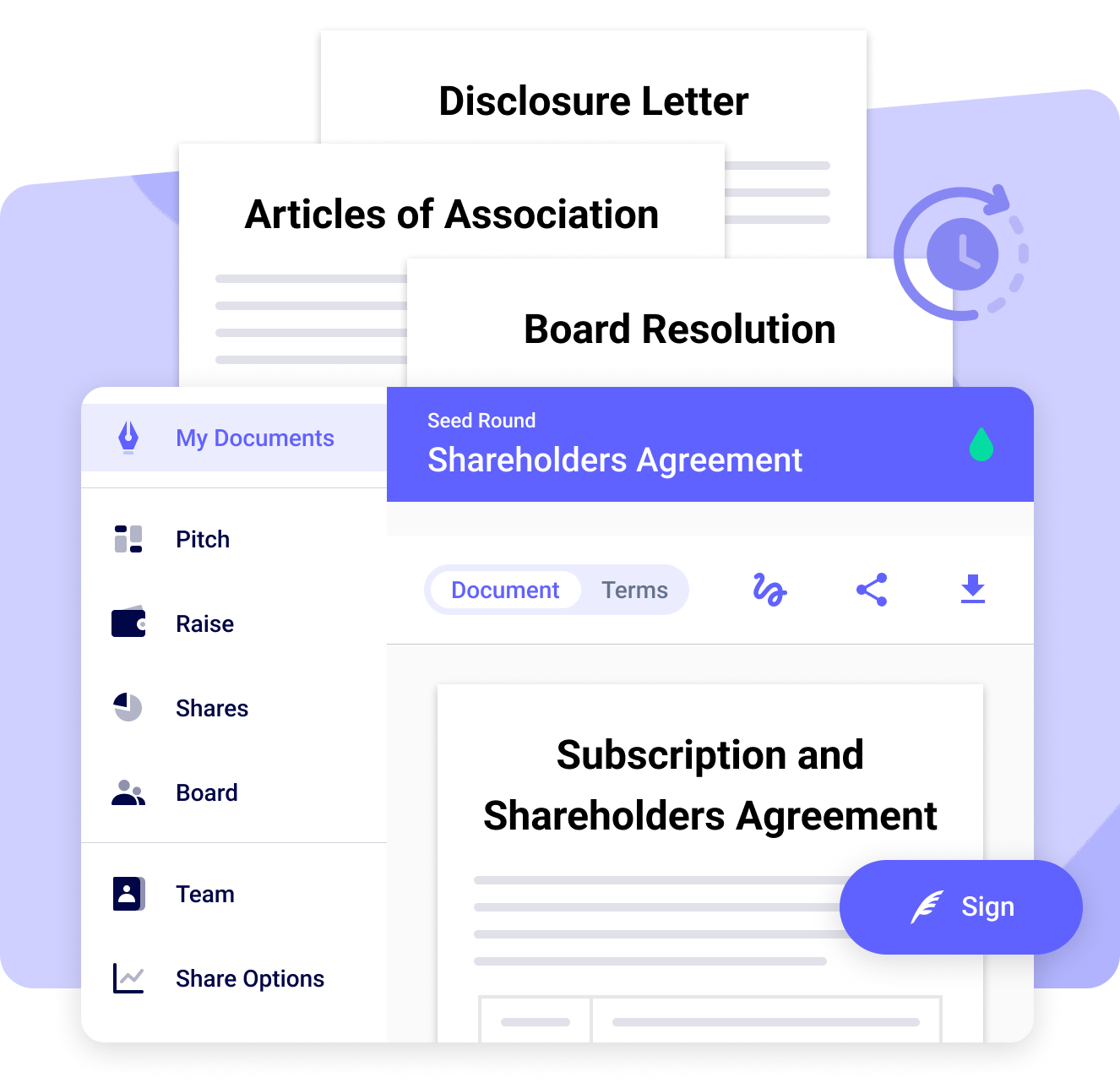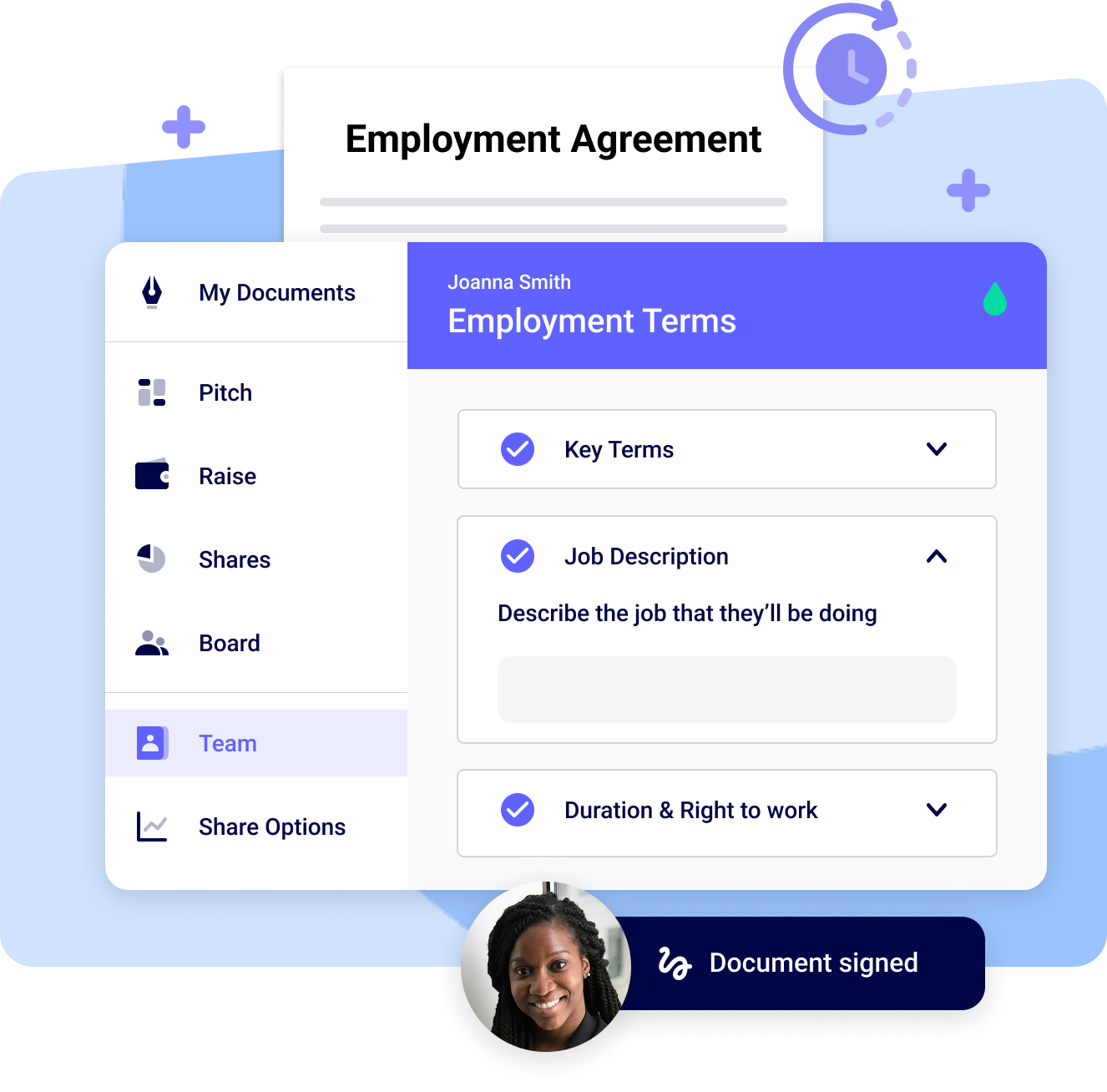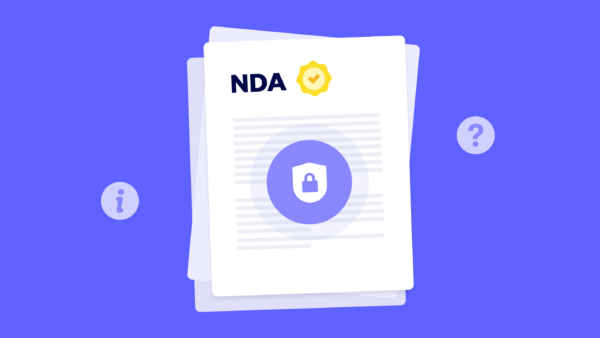SeedLegals membership: the contracts, policies and agreements included
Within any SeedLegals membership, you get access to 20 useful and popular agreements. This is a quick guide to what’s in...
✔ Create customised legal documents in less than 5 minutes
✔ Save thousands on legal fees
✔ Powerful document storage + signing for all your files

legal documents created
to create contracts
companies use SeedLegals
reviews on Google and Trustpilot
Here are some of the most popular documents we offer. Pick a document to get started:

Day-to-day legal tasks and business admin should be simple and fast. You no longer need to pay a lawyer to draft straightforward contracts and agreements. Simply answer a few questions to create your customised document.
 Automated, customisable, legally compliant documents
Automated, customisable, legally compliant documents Upload, sign and store all important company documents
Upload, sign and store all important company documents One secure home for SeedLegals and non-SeedLegals documents
One secure home for SeedLegals and non-SeedLegals documents
Get started for free and create as many legal contracts as you need. After your 7 day free trial, subscribe to one of our memberships.
 Try SeedLegals free for 7 days
Try SeedLegals free for 7 days Pay as you go or save with annual Access membership
Pay as you go or save with annual Access membership Transparent pricing - and tax deductible as ‘professional fees’
Transparent pricing - and tax deductible as ‘professional fees’

Need some help? Not sure how to get started? All our contract templates feature handy tutorials and our expert team are here to guide you through.
 Talk to us your way - chat, phone, email, video call
Talk to us your way - chat, phone, email, video call Unlimited help included in all memberships - no extra cost
Unlimited help included in all memberships - no extra cost Ask us anything - we're here 9am to 6pm Monday to Friday
Ask us anything - we're here 9am to 6pm Monday to Friday

Within any SeedLegals membership, you get access to 20 useful and popular agreements. This is a quick guide to what’s in...

Protect your intellectual property and sensitive information with a legally binding non-disclosure agreement (NDA). Find...

Our guide to 2024 finance and tax deadlines. We’ve included changes to UK laws which might affect your business.
What is a legal contract?
Why do I need a legal contract?
Can I write my own legal contract?
What makes a contract legally binding?
Is a written contract legally binding?
Is a verbal agreement legally binding?
Is shaking hands a legally binding contract?
Is there anyone who can’t enter into a legal contract?
Do legal contracts have to be signed by both parties?
Do all parties have to sign a legal contract in person?
What’s the difference between a contract and a deed?
What is a business legal contract?
How do I create a legal contract?
What types of legal contracts can I create on SeedLegals?
How much do SeedLegals contract templates cost?
How do I use SeedLegals to create a contract?
Our team of legal and funding experts have helped thousands of entrepreneurs raise money and grow their businesses.
Your company's core agreements, all in one place
Share and collect signatures online via SeedLegals
Create the exact documents you need at every stage of growth
Your information stays safe and confidential in our secure system
Talk to one of our friendly team anytime on live chat
Don't worry, our insurance covers claims related to our platform





